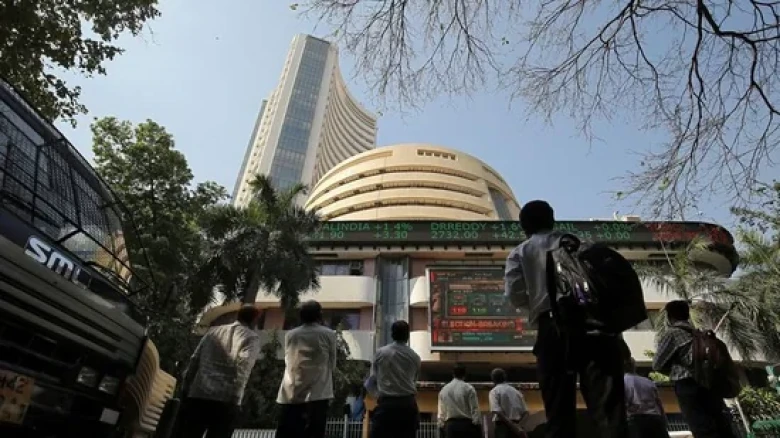Regional

Bharti Airtel, ITC, Reliance, Asian Paints, Axis Bank, and IndusInd Bank were among the worst performers on the Sensex, losing around 3.31 per cent.
Digital Desk: India's Sensex and Nifty indexes fell for the fourth day in a row on Wednesday after the Reserve Bank raised the repo rate by 50 bps and raised the inflation goal by another 100 bps.
Following the policy rate hike announcement, Indian stocks experienced numerous bouts of volatility, with benchmark indices momentarily trading in the positive zone as investors witnessed the RBI repo rate rise on the broadly expected lines.
The BSE Sensex was down 215 points, or 0.39 per cent, to 54,892 points, while the NSE Nifty fell 60.10 points, or 0.37 per cent, to 16,356.25. Both of these indices fell for the fourth straight session.
Bharti Airtel, ITC, Reliance, Asian Paints, Axis Bank, and IndusInd Bank were among the worst performers on the Sensex, losing around 3.31 per cent.
On the other side, Tata Steel, SBI, Dr Reddy's Laboratories, Bajaj Finance, and TCS were among the top gainers.
The Sensex breadth benefited sellers, with 17 stocks closing in the red.
"With the exception of the inflation forecast, which is slightly higher than predicted, the policy was on track. The repo rate was raised by 50 basis points to 4.90 per cent, while the CRR remained unchanged. Keeping in mind the risk emerging from the continuing geopolitical turmoil and its subsequent impact on food and fuel, inflation for FY'23 has been estimated at 6.70 per cent, up from a previous forecast of 5.70 per cent," said Prashant Pimple, Chief Investment Officer - Debt, JM Financial Asset Management Limited.
The central bank kept its GDP prediction for FY23 unchanged at 7.20 per cent, citing strong rural demand. The Reserve Bank of India (RBI) has reiterated its commitment to withdrawing liquidity support until liquidity conditions improve. As systemic liquidity has already been decreased due to the RBI's earlier steps, it is unlikely to make any liquidity moves in this policy.
Leave A Comment